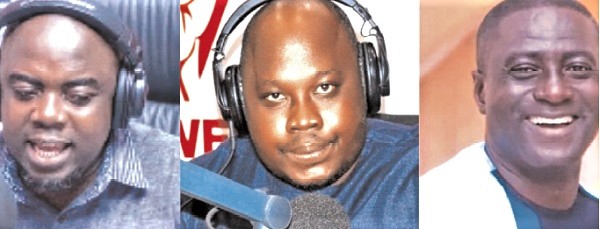Govt rights or media rights?: Insights from Afrobarometer
I have been following with keen interest the ongoing public conversations about press freedom, given recent events involving certain media persons.
Of particular interest are the cases involving Oheneba Boamah Bennie and Bobie Ansah as they point to a critical tension – government rights in the media space versus media rights to completely enjoy, without any restrains, their constitutionally guaranteed freedoms.
How should this tension be resolved?
Opinions differ, but to show how Ghanaians have wrestled with this tension, I turn to the Afrobarometer survey.
Govt or media rights?
On six different occasions- 2005, 2008, 2012, 2014, 2017 and 2019 – the Afrobarometer survey asked respondents to state their agreement or otherwise with two statements.
Statement one (media rights) – “the news media should be allowed to publish any story without the fear of being shut down”.
Statement two (government rights) has been framed in three different ways. In 2005, it was “government should close newspapers that print false stories or misinformation”; in 2008 “government should be able to close newspapers that print stories it does not like”; and in 2012, 2014, 2017 and 2019, “the government should have the right to prevent the media from publishing things that it considers harmful to society.”
In 2005, Ghanaians by a 55 per cent to a 36 per cent margin, favoured media rights. In 2008, support for media rights was 67 per cent, with only 28 per cent supporting government rights.
In 2012, support for media rights dropped to 55 per cent, while support for government rights increased significantly to 43 per cent. There was no significant change in where Ghanaians stood during the 2014 round of the survey, as media rights were favoured by 55 per cent – 40 per cent margin.
In 2017, for the first-time, Ghanaians supported government rights over media rights by a margin of 57 per cent – 37 per cent.
In 2019, they reverted to their support for media rights over government rights by a margin of 65 per cent – 35 per cent.
Over the six times that the question has been asked, Ghanaians have supported media rights 5 times (albeit at varying levels), and government rights only once.
On average, 56 per cent support media rights while 39 per cent support government rights.
Lastly, while support for media rights has grown cumulatively by ten per cent, support for government rights has declined cumulatively by six per cent. What does all of this mean? It is quite clear that given the choice between media rights and government rights, Ghanaians will lend their to the former. This is further evident in how they have answered another media conundrum question on the Afrobarometer Survey.
In 2008, 2014, and 2016, the survey asked respondents to indicate which of the following two statements was closer to their view –
Statement one: The news media should constantly investigate and report on corruption and the mistakes made by the government.
Statement 2: Too much reporting on negative events, like corruption, only harms the country.
In all three instances, Ghanaians agreed or strongly agreed with statement one- 75% in 2008; 68 per cent in 2012; and 74 per cent in 2014.
Again, when confronted with whether the media should have the freedom to do what they do or should feel some restrain, Ghanaians choose media freedom.
Warning signals for media
But even as Ghanaian support for media rights is strong as per responses from the same survey reveals some signals of concern about media.
Let me highlight a few here.
•In 2002 and 2005, no more than four out of 10 Ghanaians said they trusted government or independent newspapers a lot.
•In 2014, only 36 per cent of Ghanaians said they trusted information from public media institutions a lot which dropped to 20 per cent in 2017 and further dropped to 16 per cent in 2019.
For private media, only 28 per cent of Ghanaians said they trusted information from them a lot in 2014, dropping to 17 per cent in 2017 and hovering at 16 per cent in 2019.
• In 2019, 69 per cent of Ghanaians said news media and journalists sometimes/often spread false information.
Only 22 per cent said they never/rarely spread false information.
•In 2019, on whether the government should be able to limit or prohibit sharing of news, Ghanaians answered that government should be able to do as follows:
a. 77 per cent, if the news is false
b. 48 per cent, if government disapproves
c. 57 per cent, if the news criticises or insults the president
d. 69 per cent, the news is designed to attack or vilify certain groups in society.
So, government rights or media rights?
Media rights because their role in our democracy is too critical to have second thoughts about whether those rights must be protected or not.
But to constantly have unwavering support, the media has work to do. And that message is very clear judging by what Ghanaians have said in the Afrobarometer survey.
The writer is a Democracy & Development Fellow, Center for Democratic Development (CDD-Ghana).


